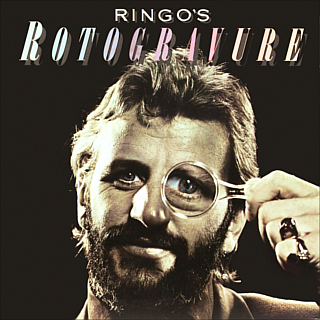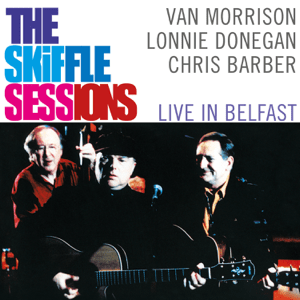Related Research Articles

The Quarrymen are a British skiffle/rock and roll group, formed by John Lennon in Liverpool in 1956, which evolved into the Beatles in 1960. Originally consisting of Lennon and several schoolfriends, the Quarrymen took their name from a line in the school song of their school, the Quarry Bank High School. Lennon's mother, Julia, taught her son to play the banjo, showed Lennon and Eric Griffiths how to tune their guitars in a similar way to the banjo, and taught them simple chords and songs.

Anthony James Donegan, known as Lonnie Donegan, was a British skiffle singer, songwriter and musician, referred to as the "King of Skiffle", who influenced 1960s British pop and rock musicians. Born in Scotland and brought up in England, Donegan began his career in the British trad jazz revival but transitioned to skiffle in the mid-1950s, rising to prominence with a hit recording of the American folk song "Rock Island Line" which helped spur the broader UK skiffle movement.
Nigel Griggs is a musician who played bass guitar in Split Enz. He is the brother of Paul Griggs from the 1970s vocal group Guys 'n' Dolls. A professional musician since 1963, Nigel Griggs played in a number of bands, notably The Cortinas and Octopus, 1963–1971, with his brother Paul, Carmen and Steve Hillage's Khan.

Donald Christopher Barber was an English jazz musician, best known as a bandleader and trombonist. He helped many musicians with their careers and had a UK top twenty trad jazz hit with "Petite Fleur" in 1959. These musicians included the blues singer Ottilie Patterson, who was at one time his wife, and Lonnie Donegan, whose appearances with Barber triggered the skiffle craze of the mid-1950s and who had his first transatlantic hit, "Rock Island Line", while with Barber's band. He provided an audience for Donegan and, later, Alexis Korner, and sponsored African-American blues musicians to visit Britain, making Barber a significant figure in launching the British rhythm and blues and "beat boom" of the 1960s.
Kincade was an English band that was formed in 1972. In that year, they had their hit single, "Dreams are Ten a Penny", but the band itself did not exist at the time. The song was written by John Carter and his wife Gill. Carter also sang all the vocals and played the guitar on the record. The song was released by the British record producer on the Penny Farthing Records label. Although the record was unsuccessful in the UK, it reached the #2 in Germany, spent six months on the charts there, and sold a million copies.
Guys 'n' Dolls were a UK pop group, initially comprising a three-girl/three-boy line-up and later becoming two-girl/two-boy. In the mid-1970s, they scored UK top-ten hits with the singles "There's a Whole Lot of Loving" and "You Don't Have to Say You Love Me". In the late 1970s they found further success in the Netherlands, where they had a number-one hit with "You're My World".

Ringo's Rotogravure is the fifth studio album by Ringo Starr, released in 1976. It was the last project to feature active involvement from all four former Beatles before John Lennon's murder in 1980, and the second of two projects following the band's 1970 breakup to hold the distinction. Following the end of his contract with EMI, Starr signed on with Polydor Records worldwide.

Press to Play is the sixth solo studio album by English musician Paul McCartney, released on 25 August 1986. It was McCartney's first album of entirely new music since Pipes of Peace in 1983, and his first solo album to be issued internationally by EMI following a six-year alliance with Columbia Records in the United States and Canada. Keen to re-establish himself after his poorly received 1984 musical film Give My Regards to Broad Street, McCartney enlisted producer Hugh Padgham to give the album a contemporary sound.

"Cry for a Shadow" is an instrumental rock piece recorded by the Beatles on 22 June 1961. They recorded the song at Friedrich-Ebert-Halle within the gymnasium, Hamburg, West Germany while they were performing as Tony Sheridan's backing band for a few tracks, under the moniker the Beat Brothers. It was written by George Harrison with John Lennon, as a pastiche of the Shadows' style. It is the only Beatles track to be credited to Lennon and Harrison alone.

The Skiffle Sessions – Live in Belfast is a live album by Northern Irish singer-songwriter Van Morrison, with Lonnie Donegan and Chris Barber, released in 2000. Lonnie Donegan had played with the Chris Barber jazz band when he had his first hit with "Rock Island Line"/"John Henry" in 1955. He had been a childhood influence on Van Morrison, who had performed in his own skiffle band with schoolmates when he was twelve years old in Belfast, Northern Ireland. This was Donegan's second album in twenty years, reviving his career until his death in 2002.
Theresa Lorraine Bazar is a Canadian-born singer, best known as one half of the pop duo Dollar.
Daniel Boone was an English pop musician who became a one-hit wonder in the United States with the single "Beautiful Sunday" in 1972. The song was written by Boone and Rod McQueen and sold over 2,000,000 copies worldwide. It peaked at number 15 on The Billboard Hot 100 singles chart at the end of the summer of 1972, having already reached number 21 on the UK Singles Chart earlier during that same year. In 1972, Boone was the recipient of the "Most Likeable Singer" award from Rolling Stone magazine.
Vernon Dalhart recorded "Puttin' On the Style" in December 1925 and by 1926 it was a popular hit. The song was collected in the Catskills by Norman Cazden from Ernie Sagar in 1945 showing that it had entered oral tradition. Another version has also been collected from oral tradition in West Virginia.

B for Brotherhood is the fifth album by pop group Brotherhood of Man. It was released in June 1978 and released on Pye Records. The album featured the UK No.1 single "Figaro" and top 20 hit "Beautiful Lover". On the UK albums chart it reached No.18 and was certified silver for sales of over 60,000 copies.
Clive Chaman is a UK-based bass guitarist and session musician, born in Trinidad and Tobago.
"Nobody's Child" is a song written by Cy Coben and Mel Foree and first recorded by Hank Snow in 1949. Many other versions of this song exist.
Octopus were an English psychedelic rock band, resulting from the renaming of a Hatfield (UK) based band named the Cortinas in late 1968. At the time of the renaming the group consisted of founder members Paul Griggs and his brother Nigel Griggs, Rick Williams and Nigel (Gary) Whinyates. As the Cortinas they released one single on Polydor in 1968. As Octopus they released one LP Restless Night on Penny Farthing in April 1971, along with several singles 1969-1971.

"Let Your Light Shine on Me" is a traditional gospel blues song, having been recorded by The Wiseman Quartet in 1923, by Ernest Phipps in 1928, and by Blind Willie Johnson in 1929. The song itself is also known as "Shine On Me", "Let It Shine on Me", "Light from the Lighthouse" and "Light from Your Lighthouse".
"Speak to the Sky" is the debut single by Rick Springfield. It reached No. 6 in Australia, No. 8 on the Canadian adult contemporary chart, No. 10 on the Canadian pop chart, No. 14 on the U.S. pop chart, and No. 16 on the U.S. Adult Contemporary chart in 1972. It was featured on his 1972 album Beginnings.
References
- 1 2 3 4 "Bygones: Diary reveals secrets behind Guys 'n' Dolls". Archived from the original on 5 May 2013. Retrieved 2 April 2011.
- ↑ Archived 21 January 2011 at the Wayback Machine
- ↑ Brian Glascock discography at Discogs
- ↑ Tim Reeves discography at Discogs
- ↑ "Official Charts Company – Guys And Dolls – There's A Whole Lot of Loving". Archive.is. Retrieved 29 June 2014.
- ↑ "Official Charts Company – Guys And Dolls". Archive.is. Retrieved 29 June 2014.
- ↑ "Kaleidoscope-Music". Kaleidoscope-music.de. Retrieved 29 June 2014.
- 1 2 Archived 27 February 2012 at the Wayback Machine
- ↑ "Oct3". Archive.is. Archived from the original on 6 September 2012. Retrieved 29 June 2014.
{{cite web}}: CS1 maint: bot: original URL status unknown (link) - ↑ Archived 12 March 2012 at the Wayback Machine